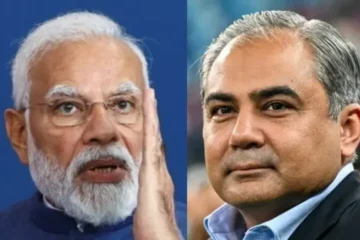Why Pakistan is Important to the Gulf Countries
The relationship between Pakistan and the Gulf countries has always been rooted in history, faith, trade, and strategic cooperation. Over the decades, Pakistan has emerged as a trusted partner for the Gulf region, providing manpower, energy cooperation, and military assistance while acting as a bridge between South Asia and the Middle East. Today, as global politics shift, the importance of Pakistan to the Gulf remains as crucial as ever.
This article explores why Pakistan is important to Gulf countries by analyzing historical, economic, strategic, cultural, and religious aspects of their ties.
Historical and Religious Bonds between Pakistan and the Gulf
Pakistan–Gulf relations are built on centuries-old links based on Islam, traditions, and shared cultural heritage. Pakistan considers the Gulf region—especially Saudi Arabia—the spiritual heartland of the Muslim world. Millions of Pakistanis perform Hajj and Umrah every year, strengthening people-to-people connections.
Historically, Gulf states and Pakistan have supported one another. Since the 1970s, Pakistan has helped Gulf countries develop their defense institutions, while the Gulf nations have provided financial aid to Pakistan during crises. This two-way relationship continues to solidify long-term trust.
Economic Cooperation and Pakistan’s Labor Force in the Gulf
One of the most significant contributions of Pakistan to the Gulf is through its labor force. Millions of Pakistani expatriates live and work in Saudi Arabia, the UAE, Qatar, Kuwait, Oman, and Bahrain. They serve in construction, engineering, healthcare, transportation, and services—driving economic development in the Gulf.
At the same time, Pakistan benefits from billions of dollars in remittances from Gulf countries. These remittances, as discussed in Impact of Remittances on Pakistan’s Economy, are the backbone of Pakistan’s foreign reserves and family incomes. Gulf states gain from a skilled and cost-effective workforce that supports mega-projects, including those tied to Saudi Vision 2030 and the UAE’s development agenda.
Pakistan and Gulf Energy Trade
The energy partnership between Pakistan and Gulf countries is another critical factor. Pakistan depends heavily on oil and gas imports from Saudi Arabia, Qatar, and the UAE. Qatar Petroleum is one of Pakistan’s largest suppliers of liquefied natural gas (LNG), which is essential for electricity generation and industrial operations.
On the flip side, Pakistan supplies the Gulf market with textiles, rice, fruits, vegetables, and meat. Pakistani products are widely consumed in Gulf households. As Gulf states diversify their food and trade sources, Pakistan’s agricultural capacity and proximity make it a natural partner. More insights are covered in Future of Pakistan’s Energy Security.
Security and Military Cooperation with Gulf Countries
When analyzing Pakistan’s importance for Gulf countries, one cannot ignore the military dimension. Pakistan, the only Muslim-majority country with nuclear capability, is a vital security partner for Gulf states. Over the years, Pakistan has provided military advisors, training, and defense expertise to Saudi Arabia and other Gulf allies.
For decades, Pakistani military officers have served in Saudi Arabia, enhancing its armed forces’ training and preparedness. In times of regional instability, Gulf nations have turned to Pakistan for support, making security cooperation a cornerstone of bilateral ties. More details can be found in Pakistan-Saudi Arabia Relations: A Strategic Partnership.
Diplomatic and Political Support in Pakistan–Gulf Relations
On the global stage, Pakistan and Gulf countries cooperate diplomatically through forums like the United Nations and the Organization of Islamic Cooperation (OIC). Pakistan often supports Gulf interests, while Gulf nations back Pakistan on critical issues such as Kashmir.
Pakistan’s geostrategic position further adds to its importance. Situated at the crossroads of South Asia, Central Asia, and the Middle East, Pakistan offers Gulf states potential access to new markets. With the China-Pakistan Economic Corridor (CPEC), Gulf countries see Pakistan as a trade hub and connectivity partner. You can learn more about CPEC and Its Global Impact on Trade.
Cultural and Social Ties
The presence of millions of Pakistanis in the Gulf has created strong cultural and social bonds. Pakistani food, clothing, and traditions are familiar in Gulf societies, while Gulf influence is visible in Pakistani culture through language and religious practices.
Educational and healthcare ties are also growing. Pakistani doctors, engineers, and academics contribute across Gulf institutions, while Gulf students pursue higher education in Pakistan, especially in medicine and engineering. A closer look at this can be found in The Role of Pakistani Expatriates in Gulf Economies.
Challenges and Opportunities in Pakistan–Gulf Cooperation
Despite their strong ties, Pakistan–Gulf cooperation faces challenges. Gulf states are diversifying their economies away from oil, while Pakistan is trying to stabilize its economy. Yet, these shifts present opportunities. Gulf countries are investing in renewable energy, real estate, and technology—areas where Pakistan can contribute manpower and expertise.
Similarly, Gulf investors view Pakistan as a promising market for investment in energy, ports, and logistics. Security cooperation in counter-terrorism, cybersecurity, and maritime safety is also set to deepen, given Pakistan’s strategic position along the Arabian Sea.
Conclusion: Why Pakistan Matters to Gulf Countries
In conclusion, the importance of Pakistan to Gulf countries cannot be overstated. From labor migration and energy trade to security cooperation and cultural ties, the relationship remains strong and mutually beneficial.
Pakistan gains remittances, investments, and energy supplies, while Gulf states benefit from manpower, military expertise, and a reliable regional ally. With shared religion, history, and strategic interests, Pakistan–Gulf relations are expected to grow stronger as both sides adapt to global changes.
The future holds immense potential for deeper cooperation in trade, security, and diplomacy, making Pakistan an indispensable partner for the Gulf region.



0 Comments